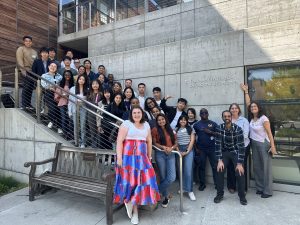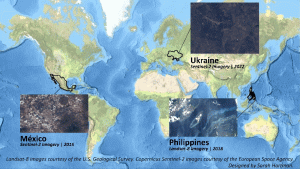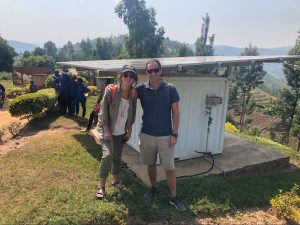
The National Security Innovation Network, a program office within the U.S. Department of Defense, and the Blum Center have expanded their partnership to connect students, researchers, and entrepreneurs at the University of California, Berkeley, with the DoD. This collaboration allows NSIN to help bring the university’s energy and talent to solve important defense and national security problems.
The NSIN efforts on campus are led by Kaitie Penry, who serves as NSIN program director at UC Berkeley to expand its network on campus and with entrepreneurs in the Bay Area.
The appointment further builds on a collaboration already established between NSIN and the Blum Center Bootcamp program. This initiative educates and empowers participants from military units to solve pressing problems within their organization. The NSIN network adapts to the emerging needs of those in the defense and national security arenas and helps link academic and venture partners to solve DoD challenges.
As the NSIN program director at UC Berkeley, Penry builds connections by expanding NSIN programming to new and diverse communities that may have important insights for addressing national security concerns. Penry works closely with faculty, students, and industry stakeholders to help solve problems related to AI, cybersecurity, humanitarian assistance, disaster relief, and more.
“Our campus is filled with problem-solvers who care deeply about innovations in national security that make our planet a safer place,” said Shankar Sastry, Faculty Director of the Blum Center at UC Berkeley. “This new partnership with NSIN and the OSD will provide opportunities for innovators working across disciplines to understand and solve the complex security challenges in areas ranging from humanitarian assistance and disaster relief to cybersecurity and preventing the spread of pandemics and misinformation.”
Penry brings significant experience to this new role gained from 10 years of DoD service. In her first year at UC Berkeley she is already making an impact on innovation for national security. Penry has deployed programs such as the X-Force Fellowship, X-Force Capstone, and Hirethon to help engage students within the national security ecosystem. In Spring 2021, she will launch the renowned Hacking for Defense program, which challenges teams of students to develop minimally viable products addressing real-world defense and national security problems, and Hacks, a program that offers students, academics, entrepreneurs, and early-stage startups a two-week period to engage in collaborative problem-solving with DoD sponsors.
Penry has a bachelor of arts degree from UC Davis and a master of arts degree from American University.
Penry is one of eight NSIN university program directors embedded at top research institutions. Other NSIN partner institutions are the University of Virginia, Arizona State University, Georgia Institute of Technology, South Dakota Mines, University of Washington, Washington University in St.Louis, University of Nebraska Omaha.




